Thanksgiving edition |
| GOOD NEWS CAN produce the same disabling shock as tragic news. I stomped around the living room, babbling: “I can’t believe it. I can’t believe it.” Ben, the cat, looked at me as if that proved what he'd always suspected: I was a fool. It was a mix of wonder, disbelief and joy; a destabilizing cocktail of adrenaline and endorphins, stirred, then shaken, and stirred again. Rhode Island had not let down America. Our strange, tiny, sometimes brave, always environmentally stunning, our former Mafia |
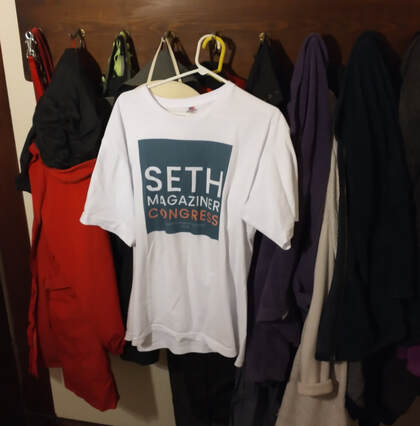
headquarters-by-the-sea, had not allowed one of its two Congressional seats turn from Blue to Red.
Indeed, that was our message when Young and I - plus our pal, Jody McPhillips, a star writer when we were reporting to Young – had gone from door to door to door:
“Your ONE vote can Keep Two Blue.”
Because the race might be that close – polls be damned - sending Seth south to Washington might make the difference in the sharply divided Congress, keeping the entire House of Representatives Blue.
“Just ONE vote.” We believed it, deeply.
The stakes were impossibly high. Not just some Red Shirts vs. Blue Shirts intramural political pickup game: this was democracy itself on the line. Donald Trump had trashed the whole concept of self-government. His barbarians had overrun the Capitol, hoping to cancel the election and, if they got the chance along the way, hoping to murder a vice president and speaker of the House. Trump's forces, and those of his successors, were still at it.
The future of the United States was at stake.
And just ONE vote – “your vote” – could make the difference.
THAT WAS WHAT DROVE us to keep asking for assignments from the campaign. We were not a pretty sight, aging journalists, no longer connected to their media megaphone, limping along sidewalks and streets, candidates not for election, but for replacement of hips, knees and joints that we’d never heard of, seeking votes, one vote at a time – just ONE.
Most people didn’t answer their doorbells – in some cases, that was because they didn’t have doorbells, just holes in doorjambs with wires dangling out of them. Some people were home and pretended they weren’t. Or that they didn’t hear the bells, although their dogs sure did, barking at the windows and pounding frantically on the glass with their claws and paws.
Some people actually answered our knocks and rings. Bless them. In the early days, some weren’t aware there was an election; or they assured us they were voting for “Jim” – as in Jim Langevin, the courageous, wheelchair-bound, Democrat,who’d held the post for 22 years but now was retiring.
Some people vowed they'd never vote. “All politicians are alike,” and not in a good way, they told us.
“They’re a bunch of cheats. Everyone is a liar. The 'system' was/is unfair." And they meant it, too, as if they had personally been betrayed, one-on-one, by an actual office-holder. A few had voted for Biden and now regretted it. "Look at what he's done to the schools," one man said.
The campaign’s strategy was to send us to voters who might have registered or voted in the past as Democrats, but were now “iffy” as to whether they would vote this time, or, if they did, for the wrong reason or person. Everywhere there were lawn signs of the Republican candidate for governor, as well as for Magaziner’s opponent.
Rhode Island is not just a small state, it’s almost a small town, and we sometimes canvassed in Fung’s home-base, Cranston, the city where he’d been a popular mayor for a dozen years; or we'd go door-to-door in Cranston's big neighbor, known to air travelers as PVD – the Providence airport that’s actually called Warwick.
Many in both of those voter-rich cities liked Fung, and one guy claimed to know him personally. “Oh yeah?” I challenged him, as if I were still a reporter, “How do you know him?” The guy answered kindly, as if he understood he was about to make a sad announcement: “I cut his grass.”
The final weeks seemed like the best of summer, not chilly, rainy late-October/ early November. There were warm, sun-soaked leafs on the ground or still on the trees, painting Rhode Island in gentle orange-yellow-brown pastels. People were out and about and some were talkative.
One woman told me she was 99, as she determinedly swept a blanket of leaves with a rake as big as she was. She proudly pointed to a robust spruce tree that she had planted years as a twig, and now had grown into one of her life’s accomplishments.
“I already voted,” she said. I asked for whom. “Well, at my age, I don’t remember.” She asked me about a candidate’s sign on a neighbor's lawn: “Who’s that for?” “The Republican candidate for mayor,” I said. “Oh, a Republican? I don’t like that.”
I wore a “Seth” T-shirt on the theory that was maybe my real contribution: as a walking Magaziner billboard. Sometimes that brought a horn honk and a thumbs-up from a motorist. One bike rider, as he whizzed by, muttered: “Scumbag.”
Indeed, that was our message when Young and I - plus our pal, Jody McPhillips, a star writer when we were reporting to Young – had gone from door to door to door:
“Your ONE vote can Keep Two Blue.”
Because the race might be that close – polls be damned - sending Seth south to Washington might make the difference in the sharply divided Congress, keeping the entire House of Representatives Blue.
“Just ONE vote.” We believed it, deeply.
The stakes were impossibly high. Not just some Red Shirts vs. Blue Shirts intramural political pickup game: this was democracy itself on the line. Donald Trump had trashed the whole concept of self-government. His barbarians had overrun the Capitol, hoping to cancel the election and, if they got the chance along the way, hoping to murder a vice president and speaker of the House. Trump's forces, and those of his successors, were still at it.
The future of the United States was at stake.
And just ONE vote – “your vote” – could make the difference.
THAT WAS WHAT DROVE us to keep asking for assignments from the campaign. We were not a pretty sight, aging journalists, no longer connected to their media megaphone, limping along sidewalks and streets, candidates not for election, but for replacement of hips, knees and joints that we’d never heard of, seeking votes, one vote at a time – just ONE.
Most people didn’t answer their doorbells – in some cases, that was because they didn’t have doorbells, just holes in doorjambs with wires dangling out of them. Some people were home and pretended they weren’t. Or that they didn’t hear the bells, although their dogs sure did, barking at the windows and pounding frantically on the glass with their claws and paws.
Some people actually answered our knocks and rings. Bless them. In the early days, some weren’t aware there was an election; or they assured us they were voting for “Jim” – as in Jim Langevin, the courageous, wheelchair-bound, Democrat,who’d held the post for 22 years but now was retiring.
Some people vowed they'd never vote. “All politicians are alike,” and not in a good way, they told us.
“They’re a bunch of cheats. Everyone is a liar. The 'system' was/is unfair." And they meant it, too, as if they had personally been betrayed, one-on-one, by an actual office-holder. A few had voted for Biden and now regretted it. "Look at what he's done to the schools," one man said.
The campaign’s strategy was to send us to voters who might have registered or voted in the past as Democrats, but were now “iffy” as to whether they would vote this time, or, if they did, for the wrong reason or person. Everywhere there were lawn signs of the Republican candidate for governor, as well as for Magaziner’s opponent.
Rhode Island is not just a small state, it’s almost a small town, and we sometimes canvassed in Fung’s home-base, Cranston, the city where he’d been a popular mayor for a dozen years; or we'd go door-to-door in Cranston's big neighbor, known to air travelers as PVD – the Providence airport that’s actually called Warwick.
Many in both of those voter-rich cities liked Fung, and one guy claimed to know him personally. “Oh yeah?” I challenged him, as if I were still a reporter, “How do you know him?” The guy answered kindly, as if he understood he was about to make a sad announcement: “I cut his grass.”
The final weeks seemed like the best of summer, not chilly, rainy late-October/ early November. There were warm, sun-soaked leafs on the ground or still on the trees, painting Rhode Island in gentle orange-yellow-brown pastels. People were out and about and some were talkative.
One woman told me she was 99, as she determinedly swept a blanket of leaves with a rake as big as she was. She proudly pointed to a robust spruce tree that she had planted years as a twig, and now had grown into one of her life’s accomplishments.
“I already voted,” she said. I asked for whom. “Well, at my age, I don’t remember.” She asked me about a candidate’s sign on a neighbor's lawn: “Who’s that for?” “The Republican candidate for mayor,” I said. “Oh, a Republican? I don’t like that.”
I wore a “Seth” T-shirt on the theory that was maybe my real contribution: as a walking Magaziner billboard. Sometimes that brought a horn honk and a thumbs-up from a motorist. One bike rider, as he whizzed by, muttered: “Scumbag.”
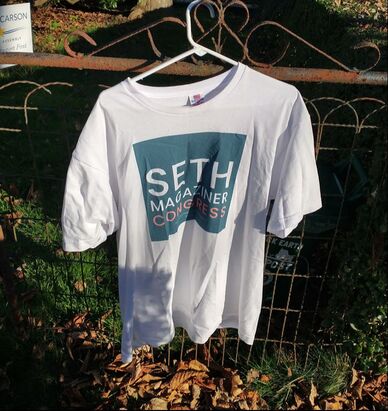
BECAUSE RHODE ISLAND IS SO SMALL – you can drive end-to-end in about an hour, even on the state’s notoriously chewed up roads, you’d think that the door-to-door stuff was simple, and you could meet at least half of the state's one-million residents on any afternoon.
Nope. Even a small state is a lot of territory to cover. It’s possible we visited 300 “doors,” as the campaign’s jargon called its curated addresses on its “turf” lists, possibly a few more than that.Whatever the total, we talked to just a fraction, and at best convinced maybe 15 to vote, and just a few to do so for “our” guy.
I actually thought our impact was minuscule and actually pathetic. But, we all agreed it was better than sitting home, listening to the pundits and prognosticators, doomsayers, sneering at the Democrats, whipping up images of the Red Wave rolling over the Ocean State.
We kept each other’s spirits up, even after the campaign was over. McPhillips, who put in a long Election Night as an official Providence city poll worker, emailed me the day after:
“My personal belief is that Fung would have triumphed had you not knocked on every (word used in newsrooms, but never printed) door in the 2nd district. Well done!”
Absolutely untrue. The campaign’s software indicated that McPhillips went to more “doors” than I did. And if you add in those that Young visited, and the extra ones she insisted we try, as if she were still handing out reporting assignments, I was always outmatched.
But we weren’t alone.
I don’t know how big a staff and volunteer force Magaziner jsf fielded. In the end, he ran a combined campaign with Gov. Dan McKee (who won big), and Magaziner had huge labor union support – his campaign chief was the daughter of a top AFL-CIO official, and one of his field offices was in a Carpenters Union hall.
I met a friend who was a veteran of progressive causes, and who lived in the same section of Cranston where I was assigned one day. She told me how she personally was organizing that neighborhood, canvassing day after day and planning a big push the day before, and the day of, the election.
And there were telltale clues that some of our assigned territories had already been visited : Seth campaign cards stuffed into door jams, faded and lying on welcome mats.
It’s possible that scores, maybe hundreds of individual and team efforts built up; and as the polls were showing Fung ahead, more and more people became as driven as we were to do their part, so that all of these combined into a critical mass that virtually willed Rhode Island not let America down.
Maybe the TV debates helped. Magaziner, state treasurer for seven years, got stronger and stronger with each one. Maybe Rhode Island Democrats tolerated Fung as a small city Republican mayor, but would not like to have a Republican in Congress. Maybe Rhode Island was just too Blue, even for a well-liked Republican.
Nobody really, actually could explain it.
But this I know, for sure.
Election Night was magical. But it was just one night, just one election.
The U.S. has become a country where every election is a desperate, do-or-die event, with democracy always on a cliff's edge. It never ends.
As much, or as little, that we can all do, we cannot rest, because it will never be over. That is what Donald Trump and his thugs have done to our democracy, one that we can never take for granted.
Victories don’t last.
There will never be a time, not in our lifetimes, when we can hang up our Magaziner T-shirts.
Nope. Even a small state is a lot of territory to cover. It’s possible we visited 300 “doors,” as the campaign’s jargon called its curated addresses on its “turf” lists, possibly a few more than that.Whatever the total, we talked to just a fraction, and at best convinced maybe 15 to vote, and just a few to do so for “our” guy.
I actually thought our impact was minuscule and actually pathetic. But, we all agreed it was better than sitting home, listening to the pundits and prognosticators, doomsayers, sneering at the Democrats, whipping up images of the Red Wave rolling over the Ocean State.
We kept each other’s spirits up, even after the campaign was over. McPhillips, who put in a long Election Night as an official Providence city poll worker, emailed me the day after:
“My personal belief is that Fung would have triumphed had you not knocked on every (word used in newsrooms, but never printed) door in the 2nd district. Well done!”
Absolutely untrue. The campaign’s software indicated that McPhillips went to more “doors” than I did. And if you add in those that Young visited, and the extra ones she insisted we try, as if she were still handing out reporting assignments, I was always outmatched.
But we weren’t alone.
I don’t know how big a staff and volunteer force Magaziner jsf fielded. In the end, he ran a combined campaign with Gov. Dan McKee (who won big), and Magaziner had huge labor union support – his campaign chief was the daughter of a top AFL-CIO official, and one of his field offices was in a Carpenters Union hall.
I met a friend who was a veteran of progressive causes, and who lived in the same section of Cranston where I was assigned one day. She told me how she personally was organizing that neighborhood, canvassing day after day and planning a big push the day before, and the day of, the election.
And there were telltale clues that some of our assigned territories had already been visited : Seth campaign cards stuffed into door jams, faded and lying on welcome mats.
It’s possible that scores, maybe hundreds of individual and team efforts built up; and as the polls were showing Fung ahead, more and more people became as driven as we were to do their part, so that all of these combined into a critical mass that virtually willed Rhode Island not let America down.
Maybe the TV debates helped. Magaziner, state treasurer for seven years, got stronger and stronger with each one. Maybe Rhode Island Democrats tolerated Fung as a small city Republican mayor, but would not like to have a Republican in Congress. Maybe Rhode Island was just too Blue, even for a well-liked Republican.
Nobody really, actually could explain it.
But this I know, for sure.
Election Night was magical. But it was just one night, just one election.
The U.S. has become a country where every election is a desperate, do-or-die event, with democracy always on a cliff's edge. It never ends.
As much, or as little, that we can all do, we cannot rest, because it will never be over. That is what Donald Trump and his thugs have done to our democracy, one that we can never take for granted.
Victories don’t last.
There will never be a time, not in our lifetimes, when we can hang up our Magaziner T-shirts.
AS ELECTION DAY NEARS, A KEY CONTEST IS FEAR VERSUS HOPE
I’M REALLY AFRAID.
Actually, afraid doesn’t really describe it. I’m terrified, frightened, heart-stoppingly, stomach-churning scared stupid at the prospect of the nightmare that will occur if Republicans win next week.
If the they take over one branch of Congress or both, if they win election-controlling posts in the states, then our fragile democracy may be on its way to ruin.
Which is not to say the GOP will win on Nov. 8.
I’d like to believe that enough Americans care about their country, and understand the horror that malevolent governments bring about in other places of the world, voters won’t let that happen to the United States of America.
Most people I’ve met in my 80-plus years are, at their core, nice.
They help out in homeless shelters; contribute to fund-raising campaigns for sick children. They care about their children. They coach their kids’ teams, go into hawk for their college educations, buy them cars. Some jump onto subway tracks to rescue people who have fallen off. Others volunteer to fight in Ukraine. Lots of people adopt dogs facing death in over-filled kennels.
There are just millions upon millions of people who want to make their country better, and a lot of them are voting right now and will turn out next Tuesday.
As to the other half of America, I’m at a loss to understand why they are devoted to Donald Trump and his attempt to overthrow the last election; why they demonize children struggling with gender identity; why they don’t want other people to have medical care, homes, good educations; why they want to ban books in school libraries; why they make fun of an 82-year-old man who’s had his skull hammered just because he’s Mr. Pelosi.
So, with the 2022 election only days, really just hours, away, I’m an emotional wreck.
I WONDER HOW PEOPLE who already are in desperate situations cope – the people who are in Ukraine, fighting off the Russian invaders; people who don’t have food; people already facing the devastation of climate change, their homes destroyed by fire and floods; people who already are seeing their reservoirs go dry; people who’ve already lost their children to bullets on city streets and in small town classrooms.
One way that I’m trying to cope with election anxiety is not to predict the election or listen to other people’s predictions, until the votes are counted.
I’m doing a few small things that I’m not sure will make a difference, but that at least might, theoretically, possibly. My wife and I wrote 355 letters for the Vote Forward campaign, which asked volunteers write brief, non-partisan messages simply asking folks to vote, without suggesting whom or what party to vote for.
I’ve been canvassing for the Democratic candidate, Seth Magaziner, who’s the Democratic candidate for the Rhode Island’s open Congressional seat. Most people I visit aren’t home or not answering the door; some have lost faith in the “system” and aren’t voting; a few have voted already; some won’t say who for, which probably means they’re voting for Seth’s Republican opponent.
These are very, very limited things, these steps. My Vote Forward letters were hand-written, which means in my case, they were hand-scrawled-printed in a barely readable script you’d expect to find in a ransom note. It’ll be a surprise if many recipients open them and a miracle if even one goes to the polls as a result.
I have friends who are doing the very same things.
ONE THING I'M NOT DOING in these final seconds leading up to Nov. 8 – and I am a journalist by trade – I am not following the news, listening to NPR, watching TV news, hardly glancing at the two newspapers that land on our bushes or those that show up online; I'm not tuning into the liberal cable network,MSNBC or downloading political podcasts
Our house is in a news blackout.
Because I don’t want to hear that the polls aren’t looking good or that they are; don't want to hear that the Democrats have botched messaging; that the trends are terrible or terrific; that history of midterms disfavors the “party in power,” that Joe Biden’s favorability numbers are a drag on the rest of the Democrats or what the shocking results of the latest focus group of barely interested voters are telling us - or not.
I know the reporters and the analysts and the pundits have to write and talk about something, and that many of them are doing their best to provide a running account of where things stand. But right now, they don’t really know – not absolutely – what’s going to happen.
I’m not letting anyone take away my hope.
I know that underdogs win in politics as well as in sports. I know if I get discouraged, depressed, and down in the dumps, I’ll give up on carrying out the little, but actual, things I can do before election day, things that may influence the outcome in a close race.
I need to keep focused on working, on winning, because I’ll despise myself, looking back, if I don’t do the little I can because I gave up too early, and I got talked out of hope. I happen to live in a tiny, terrific state whose motto is “Hope;” it’s right there on on the Rhode Island state flag.
I know that if “we” lose on election day, that the fight for democracy will not be over, because the evil forces that are at work today will be still at it tomorrow. I know that if “we” lose the election, that the fight for democracy must continue; it will be just that much harder.
So, until the long-anticipated Nov. 8 that’s now just seconds away, I’m listening to music, watching mysteries on TV and ringing door bells -- hoping at least one person will answer and agree that their vote counts.
Actually, afraid doesn’t really describe it. I’m terrified, frightened, heart-stoppingly, stomach-churning scared stupid at the prospect of the nightmare that will occur if Republicans win next week.
If the they take over one branch of Congress or both, if they win election-controlling posts in the states, then our fragile democracy may be on its way to ruin.
Which is not to say the GOP will win on Nov. 8.
I’d like to believe that enough Americans care about their country, and understand the horror that malevolent governments bring about in other places of the world, voters won’t let that happen to the United States of America.
Most people I’ve met in my 80-plus years are, at their core, nice.
They help out in homeless shelters; contribute to fund-raising campaigns for sick children. They care about their children. They coach their kids’ teams, go into hawk for their college educations, buy them cars. Some jump onto subway tracks to rescue people who have fallen off. Others volunteer to fight in Ukraine. Lots of people adopt dogs facing death in over-filled kennels.
There are just millions upon millions of people who want to make their country better, and a lot of them are voting right now and will turn out next Tuesday.
As to the other half of America, I’m at a loss to understand why they are devoted to Donald Trump and his attempt to overthrow the last election; why they demonize children struggling with gender identity; why they don’t want other people to have medical care, homes, good educations; why they want to ban books in school libraries; why they make fun of an 82-year-old man who’s had his skull hammered just because he’s Mr. Pelosi.
So, with the 2022 election only days, really just hours, away, I’m an emotional wreck.
I WONDER HOW PEOPLE who already are in desperate situations cope – the people who are in Ukraine, fighting off the Russian invaders; people who don’t have food; people already facing the devastation of climate change, their homes destroyed by fire and floods; people who already are seeing their reservoirs go dry; people who’ve already lost their children to bullets on city streets and in small town classrooms.
One way that I’m trying to cope with election anxiety is not to predict the election or listen to other people’s predictions, until the votes are counted.
I’m doing a few small things that I’m not sure will make a difference, but that at least might, theoretically, possibly. My wife and I wrote 355 letters for the Vote Forward campaign, which asked volunteers write brief, non-partisan messages simply asking folks to vote, without suggesting whom or what party to vote for.
I’ve been canvassing for the Democratic candidate, Seth Magaziner, who’s the Democratic candidate for the Rhode Island’s open Congressional seat. Most people I visit aren’t home or not answering the door; some have lost faith in the “system” and aren’t voting; a few have voted already; some won’t say who for, which probably means they’re voting for Seth’s Republican opponent.
These are very, very limited things, these steps. My Vote Forward letters were hand-written, which means in my case, they were hand-scrawled-printed in a barely readable script you’d expect to find in a ransom note. It’ll be a surprise if many recipients open them and a miracle if even one goes to the polls as a result.
I have friends who are doing the very same things.
ONE THING I'M NOT DOING in these final seconds leading up to Nov. 8 – and I am a journalist by trade – I am not following the news, listening to NPR, watching TV news, hardly glancing at the two newspapers that land on our bushes or those that show up online; I'm not tuning into the liberal cable network,MSNBC or downloading political podcasts
Our house is in a news blackout.
Because I don’t want to hear that the polls aren’t looking good or that they are; don't want to hear that the Democrats have botched messaging; that the trends are terrible or terrific; that history of midterms disfavors the “party in power,” that Joe Biden’s favorability numbers are a drag on the rest of the Democrats or what the shocking results of the latest focus group of barely interested voters are telling us - or not.
I know the reporters and the analysts and the pundits have to write and talk about something, and that many of them are doing their best to provide a running account of where things stand. But right now, they don’t really know – not absolutely – what’s going to happen.
I’m not letting anyone take away my hope.
I know that underdogs win in politics as well as in sports. I know if I get discouraged, depressed, and down in the dumps, I’ll give up on carrying out the little, but actual, things I can do before election day, things that may influence the outcome in a close race.
I need to keep focused on working, on winning, because I’ll despise myself, looking back, if I don’t do the little I can because I gave up too early, and I got talked out of hope. I happen to live in a tiny, terrific state whose motto is “Hope;” it’s right there on on the Rhode Island state flag.
I know that if “we” lose on election day, that the fight for democracy will not be over, because the evil forces that are at work today will be still at it tomorrow. I know that if “we” lose the election, that the fight for democracy must continue; it will be just that much harder.
So, until the long-anticipated Nov. 8 that’s now just seconds away, I’m listening to music, watching mysteries on TV and ringing door bells -- hoping at least one person will answer and agree that their vote counts.
IN R.I., A 'NICE GUY' ADOPTS
THE GOP’S ‘BAD-NANCY’ CARD
A COUPLE OF WEEKS AGO, I was watching a TV debate in a crucial Congressional race that could determine control of the House of Representatives – and I was getting increasingly upset the way that the Republican candidate kept bringing up Nancy Pelosi’s name.
Allan Fung, the Republican and a former mayor of Cranston, Rhode Island, repeatedly attacked his Democratic opponent, Seth Magaziner, who’s the state's treasurer, for supporting President Joe Biden and House Speaker Nancy Pelosi and their “policies” which Fung blamed for high inflation.
“... (Magaziner is) doubling down and supporting these same economic policies that our failed President, as well as Speaker Nancy Pelosi, had been forcing onto this economy that’s costing us at the gas pumps, at the grocery stores,” Fung said early in the debate.
He made the same kind of references five more times in the 57-minute forum on Oct. 18, pairing Biden and Pelosi as twin ghoulish forces, altering his wording only slightly, as if he were riffing off a talking-points sheet.
I ended up yelling at the TV, imploring Magaziner to face Fung and berate him for his demeaning tone, commanding Fung to show some respect for Pelosi, for her historic role as a political pioneer as the first woman Speaker of the House, and perhaps the chamber’s all-time most effective leader. And remind him that Pelosi has put all women (and men) in her debt by fighting successfully for equal rights.
“Seth,” I bellowed at the wide-screen, “tell him to show some respect.”
“Tell Fung that Nancy Pelosi is American icon. And to stop his sneering and his vilifying innuendo that she’s some sort of blot on the country. She’s principled, accomplished and courageous, and it’s time that you and your Republican cronies stopped your robotic attacks against this astonishing, heroic woman.”
Then, last Friday, Oct. 28, Pelosi’s longtime role as a Republican villain came into sharper focus, with the hammer attack on her 82-year-old husband, Paul, by an intruder into their San Francisco home, carrying kidnapping paraphernalia, such as zip ties and a roll of tape, demanding to know where “Nancy” was.
It was the second time that a demand for “Nancy” had been used in a violent, criminal political assault, the first being when Donald Trump’s barbarian-rioters stormed the Capitol, with insurrection – and murder – on their minds.
The Halloween-day edition of New York Times made that point, but more, eloquently than I can, in a detailed piece that said one research group has estimated that since 2018, Republicans have featured Pelosi in nearly 530,000 attack ads costing $227 million.
“For the better part of two decades, Republicans have targeted Ms. Pelosi, the most powerful woman in American politics, as the most sinister Democratic villain of all, making her the evil star of their advertisements and fund-raising appeals in hopes of animating their core supporters,” the Times story said. It added that: “Ms. Pelosi is now one of the most threatened members of Congress in the country.”
Allan Fung, the Republican and a former mayor of Cranston, Rhode Island, repeatedly attacked his Democratic opponent, Seth Magaziner, who’s the state's treasurer, for supporting President Joe Biden and House Speaker Nancy Pelosi and their “policies” which Fung blamed for high inflation.
“... (Magaziner is) doubling down and supporting these same economic policies that our failed President, as well as Speaker Nancy Pelosi, had been forcing onto this economy that’s costing us at the gas pumps, at the grocery stores,” Fung said early in the debate.
He made the same kind of references five more times in the 57-minute forum on Oct. 18, pairing Biden and Pelosi as twin ghoulish forces, altering his wording only slightly, as if he were riffing off a talking-points sheet.
I ended up yelling at the TV, imploring Magaziner to face Fung and berate him for his demeaning tone, commanding Fung to show some respect for Pelosi, for her historic role as a political pioneer as the first woman Speaker of the House, and perhaps the chamber’s all-time most effective leader. And remind him that Pelosi has put all women (and men) in her debt by fighting successfully for equal rights.
“Seth,” I bellowed at the wide-screen, “tell him to show some respect.”
“Tell Fung that Nancy Pelosi is American icon. And to stop his sneering and his vilifying innuendo that she’s some sort of blot on the country. She’s principled, accomplished and courageous, and it’s time that you and your Republican cronies stopped your robotic attacks against this astonishing, heroic woman.”
Then, last Friday, Oct. 28, Pelosi’s longtime role as a Republican villain came into sharper focus, with the hammer attack on her 82-year-old husband, Paul, by an intruder into their San Francisco home, carrying kidnapping paraphernalia, such as zip ties and a roll of tape, demanding to know where “Nancy” was.
It was the second time that a demand for “Nancy” had been used in a violent, criminal political assault, the first being when Donald Trump’s barbarian-rioters stormed the Capitol, with insurrection – and murder – on their minds.
The Halloween-day edition of New York Times made that point, but more, eloquently than I can, in a detailed piece that said one research group has estimated that since 2018, Republicans have featured Pelosi in nearly 530,000 attack ads costing $227 million.
“For the better part of two decades, Republicans have targeted Ms. Pelosi, the most powerful woman in American politics, as the most sinister Democratic villain of all, making her the evil star of their advertisements and fund-raising appeals in hopes of animating their core supporters,” the Times story said. It added that: “Ms. Pelosi is now one of the most threatened members of Congress in the country.”
LET’S RETURN to the Rhode Island TV debate.
Allan Fung did NOT directly demonize Nancy Pelosi, at least in so many words.
He did not suggest, as has the notorious Georgia Republican Congresswoman, Marjorie Taylor Greene, that Pelosi is “guilty of treason,” a crime that Greene said is “punishable by death.” Fung did not say Pelosi is the head of a Democratic pedophilia ring, or that she actually choreographed the Jan. 6 attack on the Capitol.
Instead, he simply paired Biden and Pelosi as Democrat misfits. He did not mention other “notorious” Democrats, like Senate Majority Leader Chuck Schumer, former President Barack Obama or even the other favorite GOP punching bag, Hillary Clinton.
He didn’t have to say more. The national Republicans had done his dirty work for him. Just say those two hateful words, “Nancy Pelosi,” and we all know who and what they are talking about.
Someone can argue – but I won’t – that it was fair for Fung to bring up Pelosi’s name in the debate since he is running for Congress and, if elected, he will have a vote in picking the leader of the House of Representatives.
And someone also can argue – but I won’t – that during the same debate, Fung’s opponent, Seth Magaziner, repeatedly attacked policies supported by Rep. Kevin McCarthy, the California Republican who is the House minority leader and the Speaker-in-waiting, should Republicans take over the closely divided House.
Because we’re not talking about disagreements between honorable opponents. Even the hammer that bashed in Paul Pelosi’s skull ought to know that. Allan Fung was borrowing from a Republican script developed by the party’s notorious message machine.
Which brings me to a question that many Rhode Islanders are asking with the midterm elections just a week away: why not turn over a House seat, long held by a retiring Democratic Rep. Jim Langevin, to Allan Fung, who happens to be a Republican?
Because Fung is indisputably a “nice guy.” He’s indisputably a moderate Republican. He says Joe Biden won the election. He’s for immigration reform. Against use of nuclear weapons. Couldn’t we use more of those kind of “nice” Republicans in Washington?
The Answer: no.
Absolutely, no.
Allan Fung did NOT directly demonize Nancy Pelosi, at least in so many words.
He did not suggest, as has the notorious Georgia Republican Congresswoman, Marjorie Taylor Greene, that Pelosi is “guilty of treason,” a crime that Greene said is “punishable by death.” Fung did not say Pelosi is the head of a Democratic pedophilia ring, or that she actually choreographed the Jan. 6 attack on the Capitol.
Instead, he simply paired Biden and Pelosi as Democrat misfits. He did not mention other “notorious” Democrats, like Senate Majority Leader Chuck Schumer, former President Barack Obama or even the other favorite GOP punching bag, Hillary Clinton.
He didn’t have to say more. The national Republicans had done his dirty work for him. Just say those two hateful words, “Nancy Pelosi,” and we all know who and what they are talking about.
Someone can argue – but I won’t – that it was fair for Fung to bring up Pelosi’s name in the debate since he is running for Congress and, if elected, he will have a vote in picking the leader of the House of Representatives.
And someone also can argue – but I won’t – that during the same debate, Fung’s opponent, Seth Magaziner, repeatedly attacked policies supported by Rep. Kevin McCarthy, the California Republican who is the House minority leader and the Speaker-in-waiting, should Republicans take over the closely divided House.
Because we’re not talking about disagreements between honorable opponents. Even the hammer that bashed in Paul Pelosi’s skull ought to know that. Allan Fung was borrowing from a Republican script developed by the party’s notorious message machine.
Which brings me to a question that many Rhode Islanders are asking with the midterm elections just a week away: why not turn over a House seat, long held by a retiring Democratic Rep. Jim Langevin, to Allan Fung, who happens to be a Republican?
Because Fung is indisputably a “nice guy.” He’s indisputably a moderate Republican. He says Joe Biden won the election. He’s for immigration reform. Against use of nuclear weapons. Couldn’t we use more of those kind of “nice” Republicans in Washington?
The Answer: no.
Absolutely, no.
FOR ONE THING, turning one Congressional seat from Blue to Red, even one belonging to tiny, usually insignificant Rhode Island, could transform the House into a Republican chamber of horrors, which is why I’ve been volunteering in the Magaziner campaign, canvassing door-to-door.
The other issue is character: character versus likability: Don’t we want someone likable to represent us in public life, especially in these fraught times?
Let’s get this straight, as noted already: Allan Fung is absolutely likable. He lights up a room. He’s the son of Chinese immigrants and the first Asian-American mayor of a Rhode Island city.
Actually, Seth Magaziner is likable, too. He’s also from a family of immigrants. He taught kids in a poor public school after college. He’s articulate and quick in a debate and in person. Fun to be around.
But none of that matters. Most politicians, even those you don’t agree with, are likely to be likable.
In person, most political people are fun to be around, fun to listen to, to take selfies with, have a beer with. Nice is what they do. It’s impractical to be a politician and not be likable.
But that doesn’t tell us who they really are.
Allan Fung belongs to a party whose repeated attacks on Nancy Pelosi have put her life and her husband’s life in danger – and that also threaten the political life of our country.
Tearing apart the reputations of people they don’t like is among the many despicable things that Republicans do. And during the TV debate Oct. 18 Allen Fung did not seem to mind playing a dangerous card – the Republican-crafted “Bad-Nancy” card.
If elected, Fung possibly will vote against some Republican proposals. But I’m betting that he’ll fall into line with his party’s agenda most of the time, just as he did during the debate with his repeated use of his Pelosi call-outs:
The other issue is character: character versus likability: Don’t we want someone likable to represent us in public life, especially in these fraught times?
Let’s get this straight, as noted already: Allan Fung is absolutely likable. He lights up a room. He’s the son of Chinese immigrants and the first Asian-American mayor of a Rhode Island city.
Actually, Seth Magaziner is likable, too. He’s also from a family of immigrants. He taught kids in a poor public school after college. He’s articulate and quick in a debate and in person. Fun to be around.
But none of that matters. Most politicians, even those you don’t agree with, are likely to be likable.
In person, most political people are fun to be around, fun to listen to, to take selfies with, have a beer with. Nice is what they do. It’s impractical to be a politician and not be likable.
But that doesn’t tell us who they really are.
Allan Fung belongs to a party whose repeated attacks on Nancy Pelosi have put her life and her husband’s life in danger – and that also threaten the political life of our country.
Tearing apart the reputations of people they don’t like is among the many despicable things that Republicans do. And during the TV debate Oct. 18 Allen Fung did not seem to mind playing a dangerous card – the Republican-crafted “Bad-Nancy” card.
If elected, Fung possibly will vote against some Republican proposals. But I’m betting that he’ll fall into line with his party’s agenda most of the time, just as he did during the debate with his repeated use of his Pelosi call-outs:
- “... he’s doubling down and supporting these same economic policies that our failed President, as well as Speaker Nancy Pelosi, had been forcing onto this economy, that’s costing us at the gas pumps, at the grocery stores.
- “… but most importantly, he’s doubled down right now – and talking about out of touch – he is supporting the failed policies of Joe Biden and Nancy Pelosi that is crippling this economy."
- “… the policies of the people he wants to (see) continue serving as President, and as Speaker, Nancy Pelosi."
- “I will be an independent voice standing up for Rhode Island values and standing up for those that are on Social Security, because the ones that are taking away Social Security isn’t going to be myself, it’s Seth Magaziner, because he’s doubling down on the same economic policies of President Biden, as well as Speaker Pelosi, that’s taking money out of your pockets."
- “My first vote in Congress will be to be to replace Nancy Pelosi as Speaker and her failed policies.”
- “You know, Seth Magaziner wants to double down on the policies that’s driving this cost of living crisis for all Rhode Islanders by supporting President Biden and Speaker Pelosi that have left spending out of control.”
MAYBE FUNG DIDN'T fully realize it himself at the time, but his constant mentions of Pelosi were not just annoying to Democrats like me, who are huge Nancy Pelosi fans.
Instead, they were a tip off as to Allan Fung’s character – and to those of most Republicans.
I’m not sure that I fully understood that, even as I was fuming about Fung’s repeated use of the Pelosi name, what that ploy really signified. But after the attack on Nancy Pelosi’s husband, it was clear to me that the debate had been a kind of test for Allan Fung – one that he failed.
It was a test in which a politician first appears to be a genuinely nice guy, but that in the end, he fails, because he turns out to be anything but nice.
Instead, they were a tip off as to Allan Fung’s character – and to those of most Republicans.
I’m not sure that I fully understood that, even as I was fuming about Fung’s repeated use of the Pelosi name, what that ploy really signified. But after the attack on Nancy Pelosi’s husband, it was clear to me that the debate had been a kind of test for Allan Fung – one that he failed.
It was a test in which a politician first appears to be a genuinely nice guy, but that in the end, he fails, because he turns out to be anything but nice.
BRIAN C. JONES
I'VE BEEN a reporter and writer for 60 years, long enough to have learned that journalists don't know very much, although I've met some smart ones.
Mainly, what reporters know comes from asking other people questions and fretting about their answers.
This blog is a successor to one inspired by our dog, Phoebe, who was smart, sweet and the antithesis of Donald Trump. She died Feb. 3, 2022, and I don't see getting over that very soon.
Occasionally, I think about trying to reach her via cell phone.
Mainly, what reporters know comes from asking other people questions and fretting about their answers.
This blog is a successor to one inspired by our dog, Phoebe, who was smart, sweet and the antithesis of Donald Trump. She died Feb. 3, 2022, and I don't see getting over that very soon.
Occasionally, I think about trying to reach her via cell phone.
July 2024
June 2024
May 2024
April 2024
March 2024
February 2024
January 2024
December 2023
November 2023
October 2023
September 2023
August 2023
July 2023
June 2023
May 2023
April 2023
March 2023
February 2023
January 2023
November 2022
October 2022
September 2022
August 2022
July 2022
June 2022
May 2022
April 2022
March 2022
February 2022



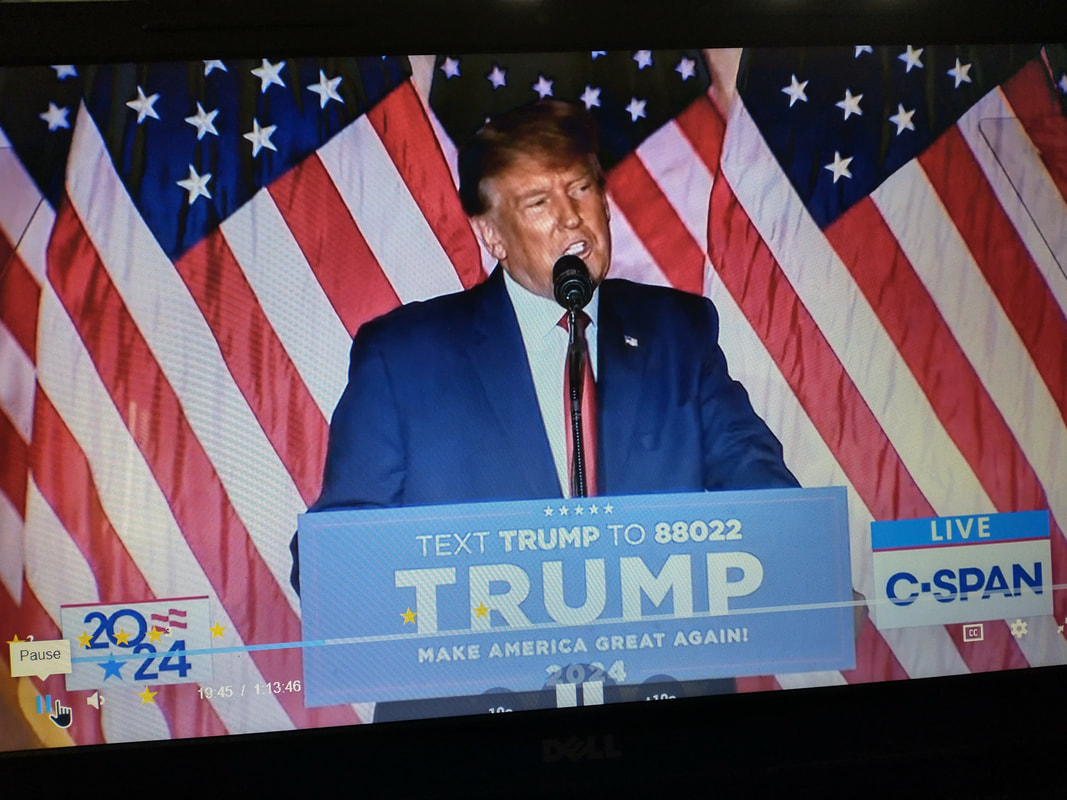
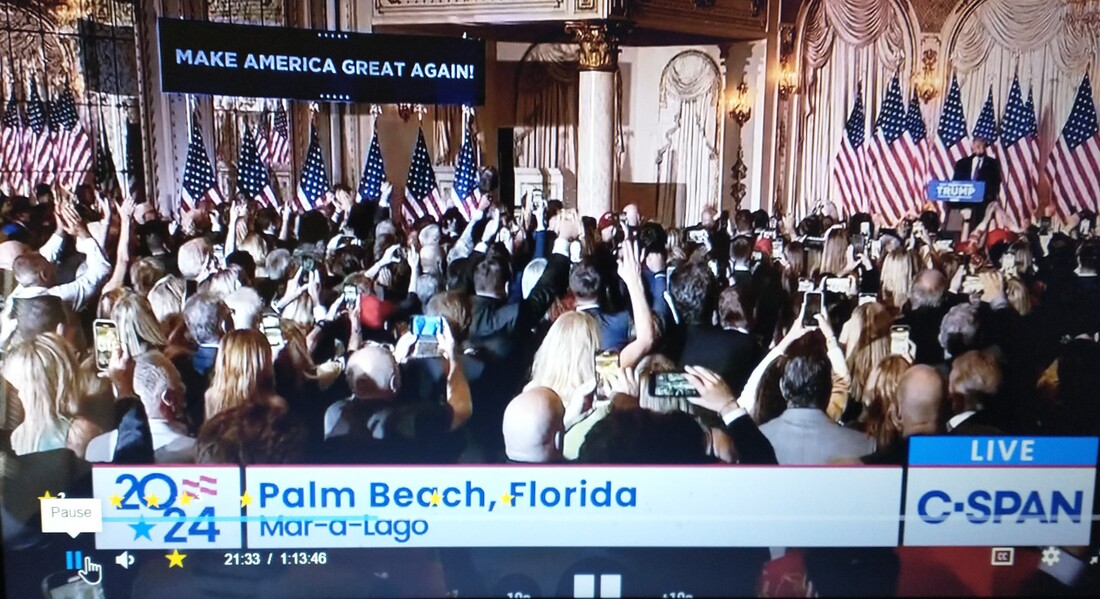
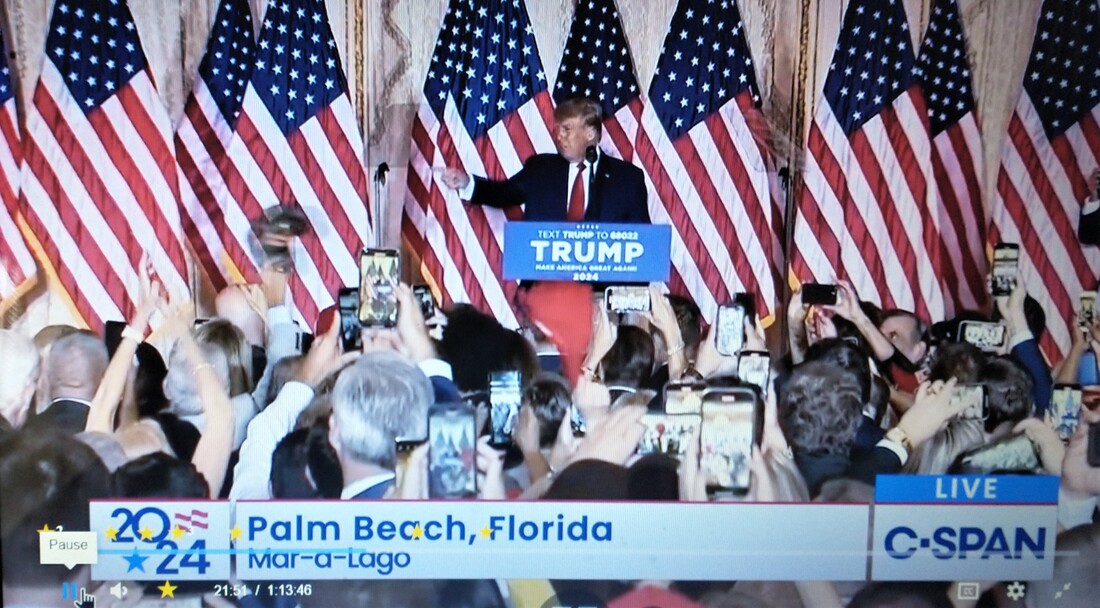
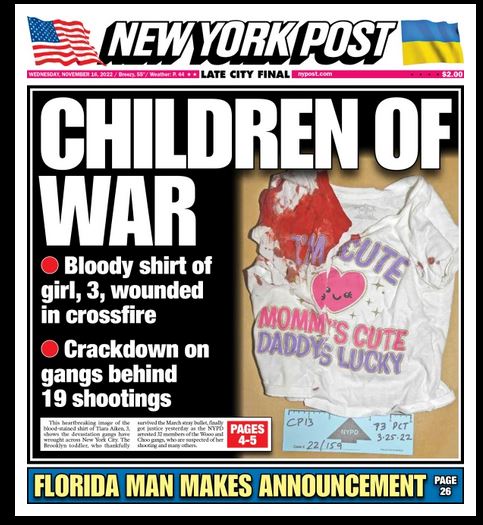


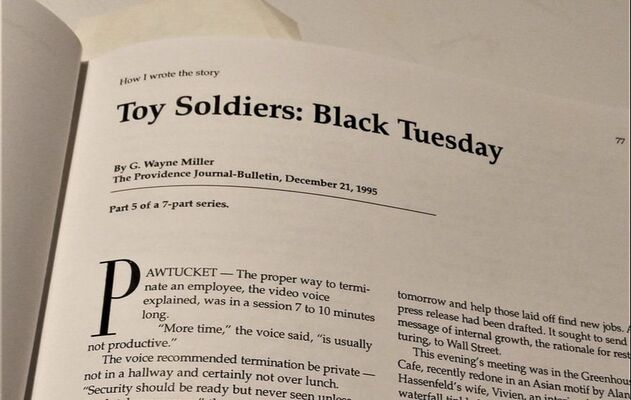



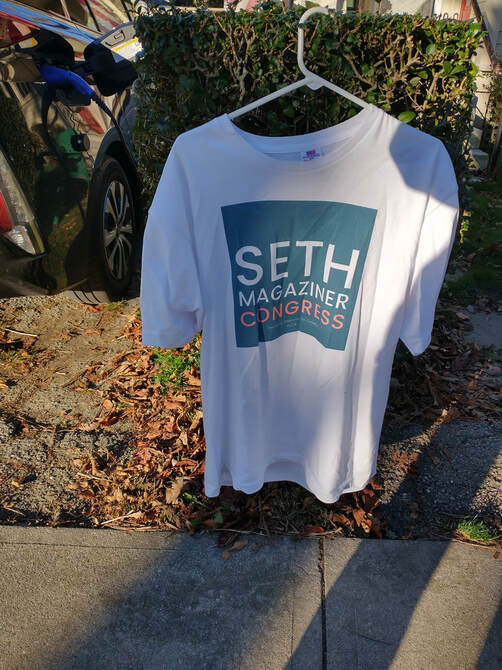
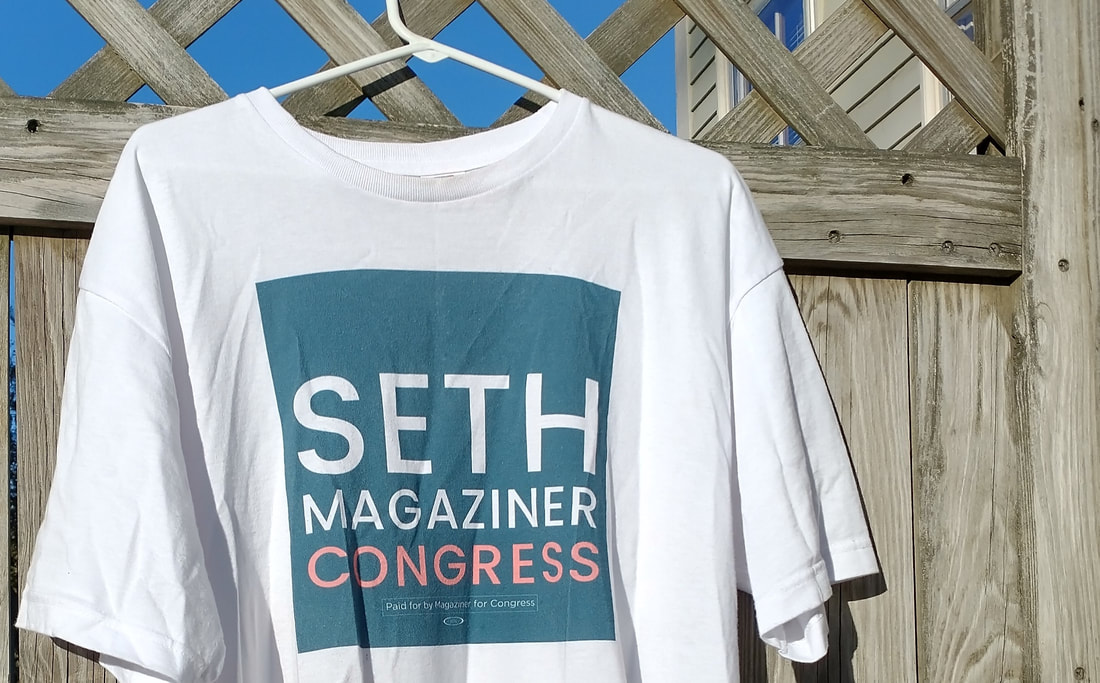

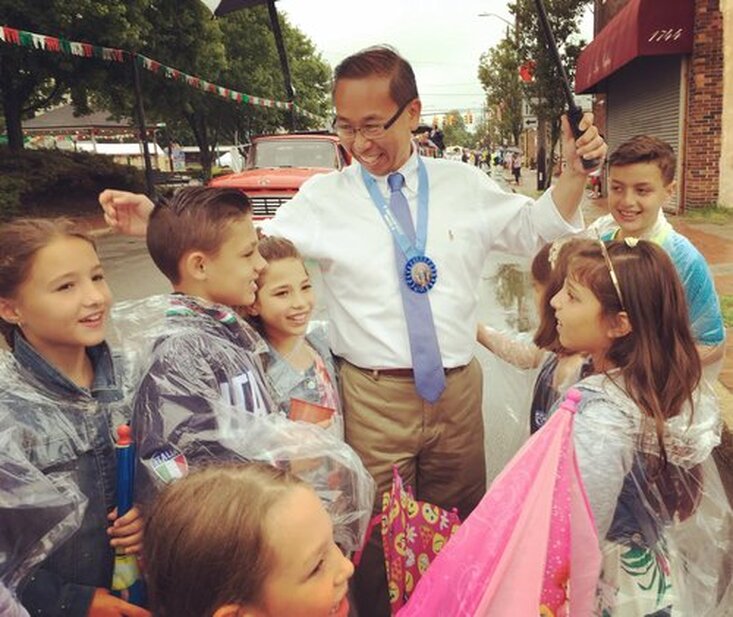
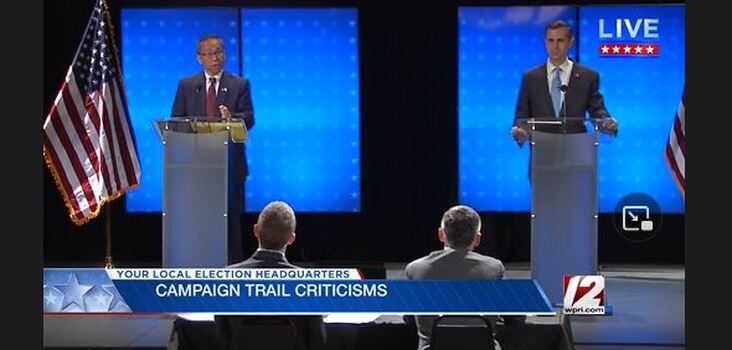
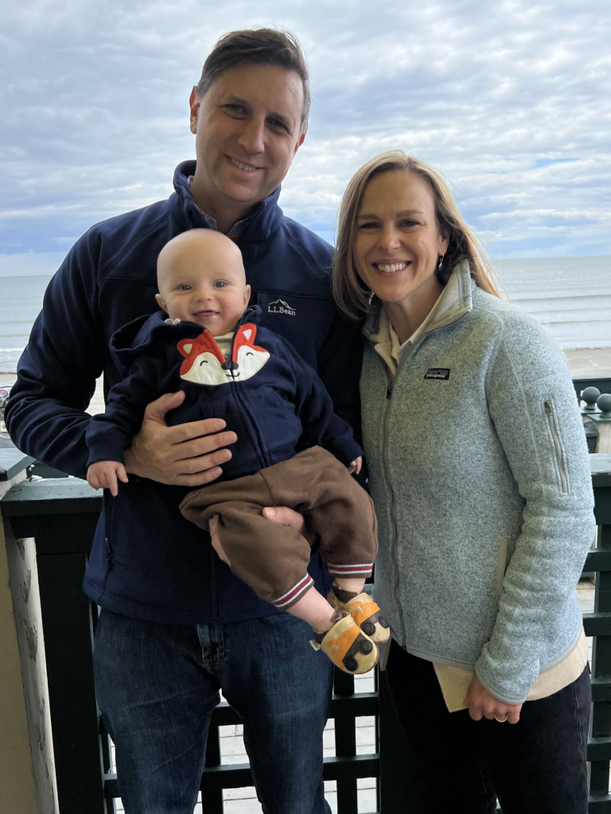
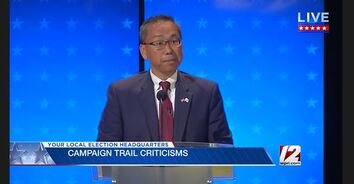



 RSS Feed
RSS Feed